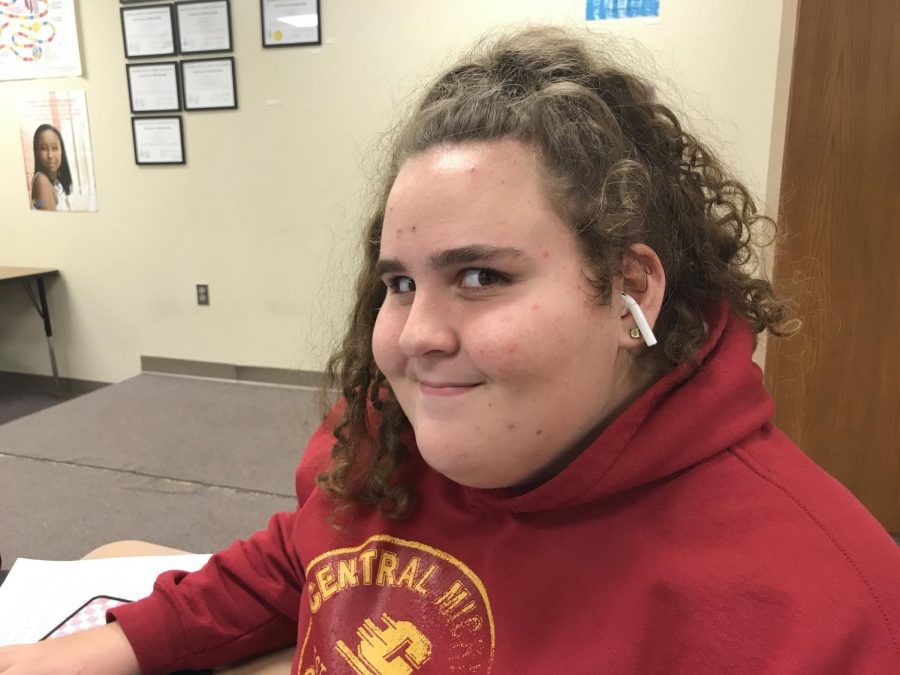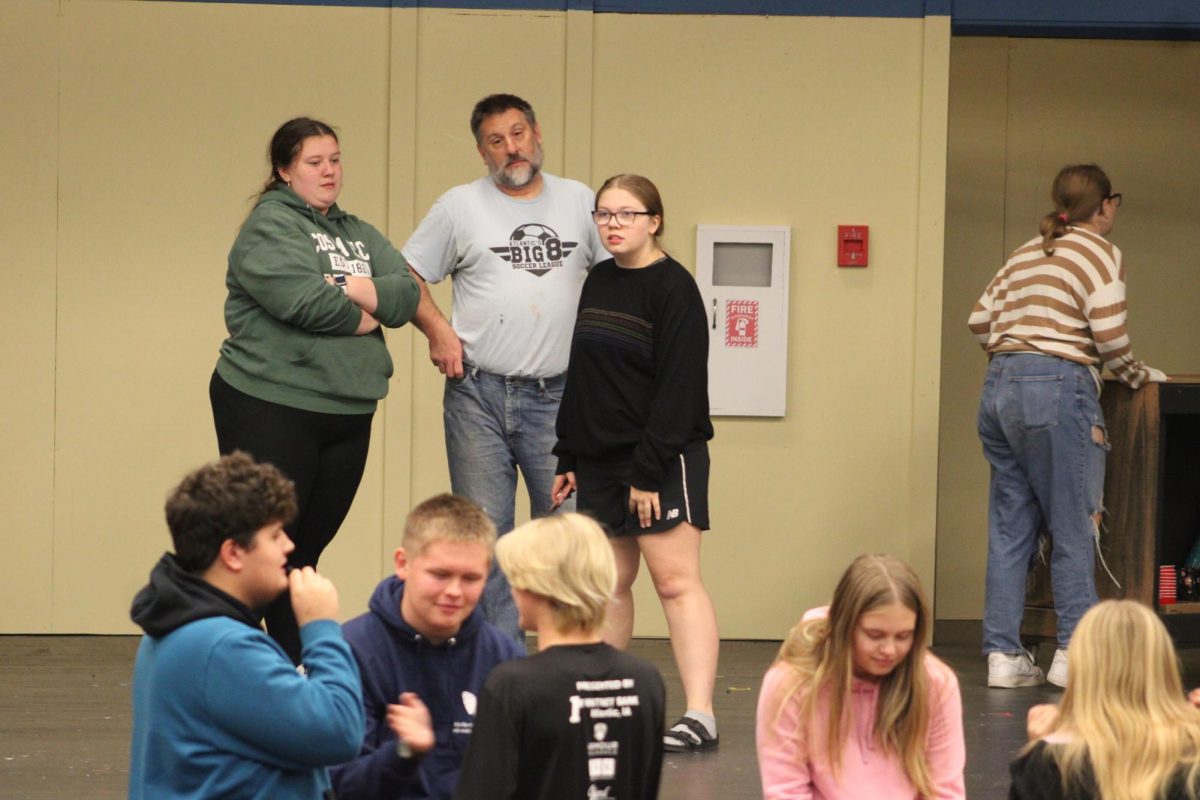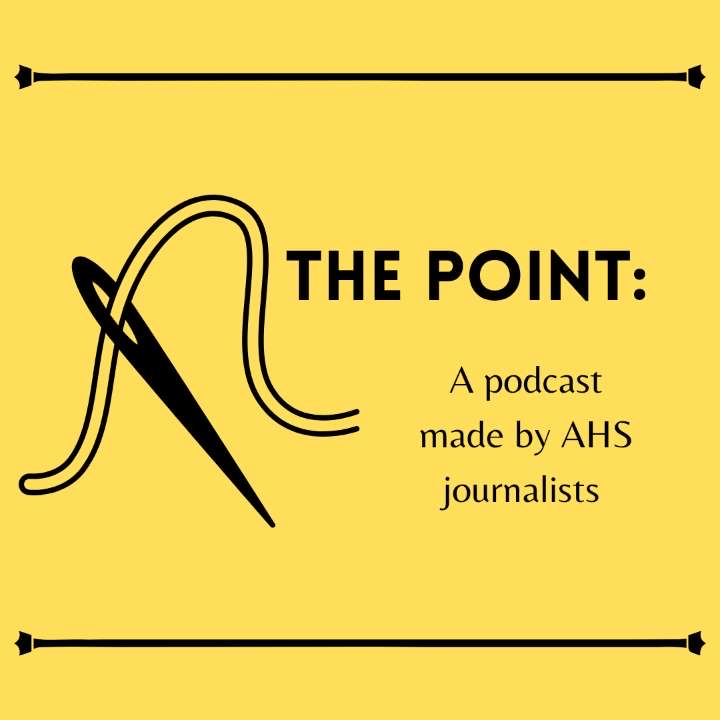Music in the Brain
Playing music while studying is shown to help students.
Freshman Charlotte Saluk jams out during class. Saluk likes to listen to music in a variety of classes, as well as during passing periods.
November 25, 2019
“Music soothes the savage beast,” so says 17th-century author William Congreve. Many students at AHS would say this is true. Music is calming and comforting and can, in some situations, improve concentration.
School psychologist Mary McLaren believes listening to music can either help or hinder a student’s learning ability, depending on how and when it’s used. “From a teacher’s standpoint, you certainly wouldn’t want it to take the place of any instruction that you’re hearing. But if it’s during work time, then I would encourage you to, as long as it’s not interrupting your own thought process,” McLaren said.
McLaren recommends music that has slow, methodical beats. This helps relax the brain. “I like French café music when I’m working,” she said. Since the lyrics are in French, the words do not interrupt her thoughts. All the same, she gets to listen to a voice. This technique can help students work better. However, music such as heavy metal or rap may make someone more prone to distraction.
Sophomore Tyler Molina listens to music often during school. “I usually listen to hip-hop or anything with a good beat,” he said. Molina also prefers using headphones. However, Molina noted sometimes his tunes pull his focus. When he gets bored of the assignment, he tends to focus more on the song than the work. “It’s hard for me to listen to music while teachers are talking, when I’m watching a video, or when I’m reading,” Molina said. “I guess I can’t focus on two types of voices.”
Sophomore Lilly Richter said listening to music while studying helps her focus, but “sometimes it distracts me when it’s a really good song.” While working on homework, she likes to listen to rap and country. Normally, she uses headphones, but would much rather use a speaker when she’s alone. Richter refrains from listening to music when teachers are giving instructions, or when doing anything that involves reading.
McLaren explained some songs may bring about a stressed reaction from the brain, which ties memories and music close together. This tie also allows people to use music to help cope with emotions.
According to McLaren, favorite songs do play a role in the brain’s reaction to certain bops. When an individual hears their favorite part of a song coming up, their body anticipates what’s to come, and releases a rush of dopamine as the song continues on.
McLaren encourages people to listen to music, even those songs that bring out sad emotions when someone is feeling down. “In my opinion, I think it’d be more helpful than sad,” she said. Her belief is that, by listening to these songs, students are going through the healing process. While it may hurt at first, eventually the music can be used to “honor” past memories.
Listening to music while working can help with productivity. However, it can also hurt it. Knowing what music distracts students can help avoid wasted work time.









